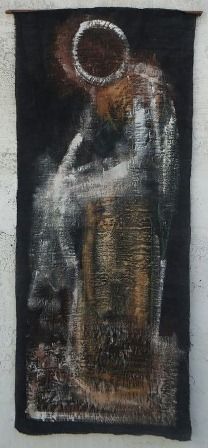Post-Traumatic Stress Disorder
Hearing Voices
PTSD and auditory hallucinations
Posted August 21, 2014
One of the greatest benefits of being affiliated with a major university is the opportunities that often arise to engage in interdisciplinary collaboration. Last year, I was invited by Composer and Researcher Jonathan Berger, to present at the seventh annual Music and Brain Symposium, which was held at Stanford University. Jonathan is the Denning Family Provostial Professor in Music at Stanford, and is co-director of the Stanford Institute for Creativity and the Arts (SICA) and The Center for Computer Research in Music and Acoustics (CCRMA).
The symposium was titled, “Hearing Voices,” and brought together an interdisciplinary panel (from the fields of music, psychology, anthropology, medical humanities and psychiatry) of researchers, scholars, and writers to examine the phenomena of auditory hallucinations.
Listening to the presentations of my co-panelists I was offered a rich array of diverse perspectives on auditory hallucinations and a unique opportunity to view this subject matter through the lens of colleagues who all come at this phenomenon from different angles: Diana Deutsch (University of California, San Diego) presented on Phantom Words, Musical Hallucinations, and the Speech to Song Illusion; Chris Chafe (Stanford University) presented on The Acoustics of Imaginary Sound; Angela Woods (Durham University) spoke on the Taxonomies of Voice-Hearing; Judith Ford (University of California, San Francisco) spoke on The Phenomenology of Auditory Verbal Hallucinations and how internal experiences can sound external; Daniel B. Smith (The College of New Rochelle) gave an account of How Hallucination Got Its Name; and Tanya Luhrmann (Stanford University) presented on her research regarding auditory hallucinations that involve hearing God.
My own presentation was preceded by a talk from Pulitzer Prize-winning combat journalist Paul Watson, as he spoke of his own lived experience of hearing the haunting voice of an American soldier whose corpse he photographed in the streets of Mogadishu in 1993. Paul’s heart wrenching story offered a personal view on the topic I was talking about: PTSD and Auditory Hallucinations, a controversial issue in my own field of psychiatry.
(For links to these presenters and video of the actual presentations please go to this link: http://www.ustream.tv/channel/music-and-brain-symposium)
Painting by Vera Gutkina Hallucinations and Combat Veterans with PTSD

Painting by Vera Gutkina
Hallucinations and Combat Veterans with PTSD
Among combat veterans with PTSD, 30-40% report auditory hallucinations (AH). AH are more frequent in combat veterans with chronic PTSD, and it has been suggested that this may reflect a distinct subtype of PTSD that may be under recognized for two reasons: first, patients are reluctant to report AH, and second, more emphasis has traditionally been placed on the intrusive images associated with PTSD and less on intrusive auditory hallucinations.
It is important to recognize that such patients do not have the overt changes in affect or bizarre delusions characteristic of other psychoses, e.g. schizophrenia. AH in PTSD appears to be seen more in veterans with higher combat exposure and more intense PTSD symptoms and who report more severe symptoms of hyperarousal. The AH are typically: ego-dystonic; contribute to an increases sense of isolation and shame; associated with feelings of lack of controllability; consist of combat-related themes and guilt; non bizarre; not associated with thought disorders; and, overall, more refractory to treatment interventions.
Some researchers have pushed to establish the validity of PTSD with secondary psychotic features (PTSD-SP) as a separate diagnostic entity, arguing that the Delineation of PTSD-SP from PTSD is notable and there are some biological studies that support the validity as a separate diagnostic entity. Still, there is currently not enough evidence to support a separate diagnostic entity.
Part of the controversy, in the field of PTSD, is to do with how we explain the presence of AH in PTSD. Recently (and I tend to favor this theory over others), it has been suggested that hearing voices in PTSD may be better conceived of as a dissociative rather than a psychotic phenomenon and that dissociation is significantly related to AH and may indeed be a potential mediating mechanismfor AH in PTSD.
The daylong event ended with “Visitations,” an evening-length program featuring two chamber opera commissions from Jonathan Berger, and librettist Dan O’Brien. In keeping with the theme of the symposium, both operas, The War Reporter and Theotokia, present the stories of two men, each haunted by inner voices. The War Reporter depicts the true story of Pulitzer Prize-winning combat journalist Paul Watson, as he seeks to rid himself of the haunting voice of an American soldier whose corpse he photographed in the streets of Mogadishu in 1993.
Copyright: Shaili Jain, MD. For more information, please see PLOS Blogs


